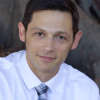Just Squeeze Out That Easy One Blastphamous
What Is The Fear Of Acting Out?
Loosely defined, the fear of acting out obsessive thoughts in obsessive-compulsive disorder (OCD) means the fear of making unwanted behavioral decisions either against one's own will or in a state of uncontrolled madness.
Obsessions are unwanted intrusive thoughts and, as such, they can be as numerous as thoughts themselves. One theory of categorizing obsessions divides them between reactive (external - focused on things in the environment that are triggering) and autogenous (self-generating - focused on an internal resistance to the presence of unwanted thoughts). (Lee et al, 2005) Fear of acting out may fall into both categories: reactive (I have a responsibility to prevent losing control when triggered by something I see) and autogenous (something is wrong with me for noticing thoughts of losing control)
Fear of acting out may be most prevalent in the following obsessions:
- Aggression - thoughts of harming others or of harming oneself
- Sexuality - thoughts of changing orientation or of engaging in unwanted sexual behaviors
- Religion - thoughts of violating religious rules
- Morality - thoughts of engaging in immoral behavior
This Is Where It Begins
Nearly all of these manifestations center around the same theme, but simply different content or words - the theme of losing one's identity. Those who fear harming themselves or others (a.k.a. "Harm OCD" sufferers) fear losing their sense of self in exchange for one who commits violence; those with sexually-themed obsessions fears losing their sexual identity; and the religious and morally scrupulous fear losing their identity as pious or righteous.
At the heart of this theme of identity loss is the understanding that a behavioral choice - a single act - whether intentional or uncontrolled, could tip the scales irreversibly to the dark side. If a person suffering from intrusive thoughts about violently attacking someone actually does violently attack someone, the entire OCD construct is reduced to a socially-constructed belief that ultimately failed to hold up to reality. Living so close to this line and knowing all it takes to destroy everything is to simply step over it, is what consistently steers sufferers away from the historical evidence of their lives and towards the always-alluring, "yeah… but what if…WHAT IF!?"
Russian Roulette
To understand the fear of acting out, consider two concepts: Russian roulette and the kinesthetic sense. These have likely never been listed in the same sentence before, but they both capture something meaningful about the internal experience of this common OCD fear.
The form of torture known as Russian roulette involves loading one bullet into a revolver, spinning the cylinder, pointing it at the head and pulling the gun's trigger. This leaves a one in six chance of death. Forcing someone to play this "game" is not designed simply to kill, but to cause anguish and articulate that the person forcing the game upon the victim cares not whether the player lives or dies. Whenever an OCD sufferer finds himself in a triggering situation, allowing intrusive thoughts of "snapping" or "losing control" feels very much like pulling that trigger. It often seems like each intrusive thought is a squeeze of the trigger and this one will end everything. But with OCD, the end of everything is not simply death, but the loss of a tolerable life. In other words, fates perceived less tolerable than death – to discover you're a child molester, to discover you've murdered your spouse, as examples.
The Kinesthetic Sense
When people consider their senses, they usually think of touch, taste, smell, vision, and hearing. The kinesthetic sense (what you might call the actual sixth sense) is the ability to know where your body parts are in relation to one another when you can't see them. To understand this, place your hand behind your back, but without touching your back. Where is your hand? Behind your back, yes, but how do you know? Well, you just know because your brain has a sense of where the hand is positioned in space even without information from touch or sight. In rare cases where this sense is lost or damaged, people lose the innate ability to walk or make facial expressions (they are able to reclaim some of these abilities using sight to compensate).
The fear of acting out is absent in most of us because we carry around a general sense that we know where our behavioral choices are in space, so to speak. My daughter is eating breakfast a few feet away from me as I write this. How do I know I won't spontaneously and impulsively turn to her and strike her? I actually can't explain this, but I just don't feel like it's worth my attention. Even having brought it to my attention in this moment, it seems as nonsensical as wondering if I might turn into a piece of buttered toast. But what if this sense were weakened somehow? This would not make me any more likely to act out in violence, but would make me less confident in my conclusion that it is uninteresting. People who live with a fear of acting out are no more likely than anyone else to do insane things. But they live without the comfort of that "other sense" that makes this question so easy to answer. How do I know I won't snap? I just know. If I didn't just know, I would feel the need to know. And this need to know is the root of obsessive compulsive disorder.
What are we afraid of?
So what is acting out anyway? Why do people fear this poorly defined concept? Perhaps because of how poorly defined it is. When one of my kids is upset and throws a toy across the room, I would describe her as "acting out" her frustration. If a person has a fantasy of being a skilled game hunter, puts on a hunting outfit and walks around the woods, I might say that this person is "acting out" a fantasy. Or when a mass shooting takes place, people often describe the perpetrator as "acting out" some belief or emotion. Yet these definitions don't suffice, especially when we consider that these are all planned, thought-out, organized events. However, when my OCD clients tell me they are afraid of acting out, they seem to be referring to something altogether different. They seem to be referring to one of two things:
Const ruct #1 - Responding impulsively, uncontrollably, and in conflict to one's genuine desire, to the presence of an unwanted thought in a manner that reflects the content of that thought (thinking of something undesirable and then spontaneously doing that undesirable thing)
Construct #2 - Having an unwanted thought persist repeatedly in the mind for some extended amount of time that the thinker believes is too long, causing some sort of psychotic defeat, resulting in a breakdown in the ability to think rationally and a misguided decision to engage in a display of the thought's content (doing something because it's been thought of longer than tolerable)
A few examples of Construct #1 may include the following feared events:
- An intrusive thought about pushing someone into traffic, followed by a loss of physical control that results in the thinker literally pushing a person to their death
- A heterosexual with fears of being gay suddenly responds to a mental image of kissing his same-sex friend by lunging for his face and planting one on him
- A person obsessively fearing being a pedophile notices a groinal response when bathing her child and begins unconsciously masturbating
- A person afraid of harming his son gets an image of suffocating him with a pillow while he sleeps and suddenly grabs a pillow and plays out the thought as if watching himself in a movie
- A religious Christian scrupulosity sufferer becomes aware of a blasphemous thought while praying and spontaneously begins worshipping the devil before realizing it
- A person with moral scrupulosity has a thought about shoplifting and impulsively grabs an object from a store shelf and pockets it without the intent to do so
A few examples of Construct #2 may include the following feared events:
- A person with pedophile fears remains untreated for OCD for "too long" and the chronic presence of unwanted sexual imagery associated with children wears him down into a deep depressive state. In this state he concludes that he is a pedophile and "finds himself" inappropriately touching his children.
- A person with Harm OCD concludes that the constant barrage of intrusive violent thoughts is too much, triggering a psychotic break that leads him to believe that only an act of violence will free him from the thoughts. In this dream-state, he methodically plans and follows through with a violent act.
- A defeated sufferer of intrusive unwanted "gay" thoughts finally convinces himself he must be gay and starts engaging in gay sex acts.
- A religious scrupulosity sufferer becomes worn down over time from the endless intrusive thoughts about the devil and decides to engage in a series of defiant sinful acts
- A moral scrupulosity sufferer gets worn down by thoughts that he has been dishonest with his wife and decides to have an affair
You're fine, hon' ..... uh, mostly….
So this is the part where I am expected to say that these feared events never take place. After all, the OCD sufferer has a fear of acting out, not a history of acting out. OCD sufferers who get stuck on the fear of acting out naturally want reassurance that neither Construct 1 nor 2 will come true. More than simple reassurance that they themselves will not engage in an act that they find abhorrent, they desire proof that engaging in such an act is an impossibility. They want to know, has anyone with OCD ever done this or that? Reassurance seeking is a common compulsion in the disorder and trained OCD therapists know to withhold reassurance and promote uncertainty tolerance in their work. But even a trained OCD specialist may crack in a moment of sympathy for the OCD clients suffering and say something like "People with Harm OCD never commit acts of violence" or "You wouldn't be so upset by these gay thoughts if you actually wanted to be gay" and so forth. These statements seem innocuous primarily because of how obvious they are, but it is actually problematic for a number of reasons:
- How can we verify the claim that no OCD sufferer has ever committed any kind of act? There is no data on crimes not committed.
- Though an analysis of all criminals is sure to reveal some with OCD, no data exists to identify what role (if any) the OCD played in the criminal behavior.
- Relying on the idea that acting out is "impossible" only validates the belief that the content of the intrusive thoughts is inherently important. For treatment to work, compulsions must be resisted without certainty of the outcome.
- If you have fists, you can punch, so any claim of the impossibility of an event addresses a different issue, the notion of capability. Capability is not the issue – probability and attention to that probability is the issue.
Safety behaviors and the fear of acting out
If the idea behind the fear of acting out is that these inexplicable decisions will be made in moments of weakness, OCD sufferers may find themselves engaging in a variety of safety behaviors aimed at avoiding these perceived weakness. They may be highly cautious regarding:
- Sleep deprivation
- Alcohol (or any judgment-influencing intoxicants)
- Feelings of anger or sadness (that are viewed as warnings of imminent behavior)
- Distractions
- Being left alone
- Being left alone with triggering people (e.g., children or other vulnerable people)
- Anything where self-control could come into question
Compulsions and the fear of acting out
Compulsions are physical or mental behaviors engaged in for the purpose of getting certainty and relieving discomfort about obsessive thoughts - like hand washing. Common compulsions found in the fear of acting out include:
- Avoidance and other safety behaviors (see above)
- Reassurance seeking from others about the likelihood of thoughts coming true
- Confessing of the content of intrusive thoughts
- Reassurance-seeking online or elsewhere on the precise differences between OCD and psychopathy
- Mentally reviewing past intentions or feelings for evidence of likelihood to act out
- Reviewing hypothetical scenarios as a means of testing whether an intrusive thought could come true
- Repeating or chanting neutralizing statements that contradict obsessions
- Compulsive prayer
Research and the fear of acting out
One study found that people who fear losing control are more likely to become aware of and upset by intrusive aggressive thoughts when provoked by an imagined situation of having their goals interfered with. In other words, if I have a goal and that goal is thwarted, I feel frustrated and this results in the presence of an aggressive thought. Those without the fear of loss of control were less burdened by the presence of such thoughts, viewing them as, well, silly. The study suggested that intrusive harm thoughts are not necessarily randomly occurring events, but naturally occurring responses to frustrating situations that people with this fear are over-responding to. (Riskind et al, 2007) And in fact people with OCD do tend to have somewhat increased impulsivity overall (Benatti et al, 2014) so we can't find comfort in the previously assumed stance that being compulsive and impulsive were two states of being that never collided (though it is worth noting that the impulsive behaviors commonly seen are alcohol use, hair pulling, skin picking, and other body-focused repetitive behaviors). In some cases compulsive behavior may even be considered to be a way to resist giving in to impulses (Fontanelle et al, 2005). Does this imply that without rituals, people aware of unwanted impulses would follow through with them? No, because we all have unwanted impulses. More accurately it is the OCD sufferer's over-valued fear of acting out that makes the comfort of rituals so alluring.
So if you take a common intrusive thought (for someone with or without OCD) such as "What if I just turn my car into oncoming traffic?" Is this an actual impulse to do so that non-sufferers ignore and OCD sufferers respond to with compulsions? Perhaps these impulses are normal to have, neither random nor a product of a mental health issue, but just being responded to with a greater sense of threat when OCD is present. The logical conclusion then is that the fear of acting out is not a problem of having thoughts about acting out, but literally of having a fear of those thoughts.
Exposure with response prevention
The most effective treatment we have for OCD is cognitive behavioral therapy (CBT) with an emphasis on exposure with response prevention (ERP), which involves gradual interaction with feared states while resisting compulsive responses. Specifically targeting the fear of acting out consists of two elements: eliminating safety measures and inviting opportunity.
Eliminating safety behaviors
In addition to the avoidance measures listed previously, OCD sufferers will often put effort into make acting out too difficult, a failsafe against losing the mind. Examples for Harm OCD may include hiding knives, hammers, belts or other items. Those with sexually-themed obsessions may set filters online blocking them from seeing unwanted sexual imagery. The aim of these compulsive behaviors is to make it very inconvenient to follow through with an unwanted act in the face of this imagined loss of control. It's the equivalent of a werewolf handcuffing himself to a tree before a full moon (I saw that in a movie once, not a bad idea, for a werewolf). Try to picture yourself for a moment "snapping" somehow, literally losing your sense of self, falling into a trance of some kind controlled exclusively by a voice in your head telling you to harm a loved one. You walk, zombie-like to the kitchen, open the drawer to grab a steak knife, thinking "kill, kill, kill" and then, much to your murderous dismay, the knives have been hidden by your sane self. You shrug, grunt, sit, come back to your senses. Nobody got hurt. This fantasy sounds a bit comical when written out, but in the mind of the OCD sufferer, it seems perfectly necessary, vague in its details but clear in its intent. The problem lies in the message the brain receives from these safety behaviors – the conclusion that the thinker must have been in danger in the first place.
Inviting opportunity and tempting fate
It's important to understanding that "acting out" is the worst thing a person can imagine and it can take any form. When OCD sufferers experience this fear, it is not something abstract. It is driven by sharp and biting mental images that can seem crystal clear in the moment. But where do we even get this stuff? Well, every Sunday I watch The Walking Dead (a show mostly about stabbing people in the eye or pulling their guts out), Homeland (a show mostly about blowing people up or shooting them from a rooftop) and The Affair (a show about impulsively tossing away your marriage and pathologically lying to everyone you care about). So if I had a fear of acting out, there would be plenty of concrete material in my mind to enhance the storylines I might spin. This is not to blame television (or the news for that matter) but to highlight that it doesn't take much of a spark to light the fuel pooling in the OCD mind. The imagery and the storylines are all around us.
ERP for the fear of acting out means purposely making contact with the fear by inviting the unwanted thoughts and feelings, and sticking with them without engaging in reassurance or safety behaviors. Some examples of ERP to fear of acting out may include:
- Watching triggering media while allowing unwanted thoughts and feelings to remain present
- Engaging in social activities where triggers are likely to come up
- Agreeing with thoughts about the potential to act out
- Volunteering to use triggering items (e.g. asking to cut the vegetables for dinner)
- Writing out scripts describing losing control and the negative consequences that could result
For any of these approaches to be effective, the person doing the exposure must be committed to resisting the compulsions. Without the response prevention, the exposure simply devolves into a checking compulsion, a way to test whether or not the feared event will occur. This is not the point. The point is to re-teach the brain that it is capable of being in the presence of these thoughts without needing to know for certain what the outcome will be. The treatment is meant to kickstart the part of the brain that can sense confidence in the face of disturbing thoughts, feelings, and impulses.
Is nothing sacred?
Common understanding of behavioral therapy and reality itself is that we cannot control our thoughts or our feelings, but we are capable of controlling our behavior. Further, changes in behavior bring about changes in the types of thoughts and feelings we notice the most. In other words, if I behave like a person who is not particularly concerned with causing harm (by, for example, doing nothing about intrusive harming thoughts in the presence of a child), then over time I will develop the air, the confidence of a person who is at no risk of acting out. If, on the other hand, I invest in avoidance, reassurance seeking, and other safety behaviors, I am likely to be plagued by more and more thoughts and feelings of doubt and insecurity.
People are generally comforted by the idea that we can control our behaviors. At a recent visit to the Grand Canyon, I wondered, how do I know while standing on the edge that I won't jump? Well, because I don't think I will or feel like I will. I sense that I won't. But then what if I did think or feel like I could? That's ok, I can still rely on my ability to choose not to do it, because I can control my behavior. Those who fear losing control of their ability to maintain control, carry an additional therapeutic burden. They cannot rest on the generally accepted idea that we have total control of all behavior. Considering this notion either functions as compulsive reassurance or doesn't seem believable – keeping the OCD alive in either case. These OCD sufferers must take it a step further and expose to the uncertainty even about behavioral control.
Perhaps I will lose control and will have to cope with the consequences. Words fail to do justice to the severity of pain such an idea comes with. One might ask the OCD itself, have you no decency? Is nothing sacred, that you would even suggest I could snap and harm my child, kill myself, molest someone sexually, or break my own religious or moral codes voluntarily? Correct. Nothing is sacred. Those who beat OCD go where the OCD goes. The very notion of losing control implies that there must be control to lose and the OCD mind latches on to this. But the truth is there is no control to lose because there is only the present moment at any given point in time. Control is an illusion about predicting the future. To say "I know I will not act out" is to say "I know what happens before it happens" and this is an inherently toxic frame of mind for an OCD sufferer. It creates an internal belief that morality is wrapped up entirely in what we could do in the future, rather than simply what we choose to do in the present. It places an unbearable burden to rely on rituals because they are the only behaviors that elicit a feeling of moral responsibility about the future.
Never seen someone snap, but have seen people get better
So where does this leave us? Well, I can only speak from experience. I have never seen someone "act out" an obsession (in the context of the definition we are using). I have never seen someone "snap" unpredictably and lose control (presumably because I almost exclusively treat OCD and anxiety sufferers, not people with psychosis or sociopathy). But we have to do more than simply dismiss the fear of acting out as more OCD nonsense and just push OCD sufferers away with "You're not gonna do that" waves of the hand. The fear of acting out can put people in such an isolated space that they fear acting at all. The fear of acting out can be so all-encompassing that depression feels like relief. So we can do more than just talk about it like it's ridiculous. We can have compassion for those who struggle with it and collaborate among sufferers, treatment providers, and family members to come up with interventions that break through this wall of fear. As alluded to above, this includes not only traditional CBT, the challenging of distorted assumptions, and the gradual exposure to feared situations (ERP), but also mindfulness, the repositioning of oneself as an observer of what it feels like to play Russian roulette or to be conscious of the absence of an innate sense of security. People do learn to master OCD, including the fear of acting out their worst intrusive thoughts, and can lead healthy and fulfilling lives.
Recommended For You

462 Likes

382 Likes

335 Likes

196 Likes

161 Likes
Sources
Benatti, B., B. Dell'Osso, C. Arici, E. Hollander, A.C. Altamura. 2014. "Characterizing impulsivity profile in patients with obsessive-compulsive disorder." International Journal Of Psychiatry In Clinical Practice 18, no. 3: 156-160.
Fontenelle, L.F., M.V. Mendlowicz, M. Versiani. 2005. "Impulse control disorders in patients with obsessive–compulsive disorder." Psychiatry & Clinical Neurosciences 59, no. 1: 30-37.
Han-Joo Lee, Seok-Man Kwon, Jun Soo Kwon, M.J. Telch. 2005. "Testing the autogenous–reactive model of obsessions." Depression & Anxiety (1091-4269) 21, no. 3: 118-129.
Riskind, J.H., C.R. Ayers, E. Wright. 2007. "Simulated Interpersonal Provocation and Fears of a Loss of Impulse Control as Determinants of Aggressive Mental Intrusions." Journal Of Cognitive Psychotherapy 21, no. 4: 285-294.
Date of original publication: December 15, 2015
Updated: December 18, 2015
Source: https://www.anxiety.org/ocd-fear-of-acting-out
Post a Comment for "Just Squeeze Out That Easy One Blastphamous"